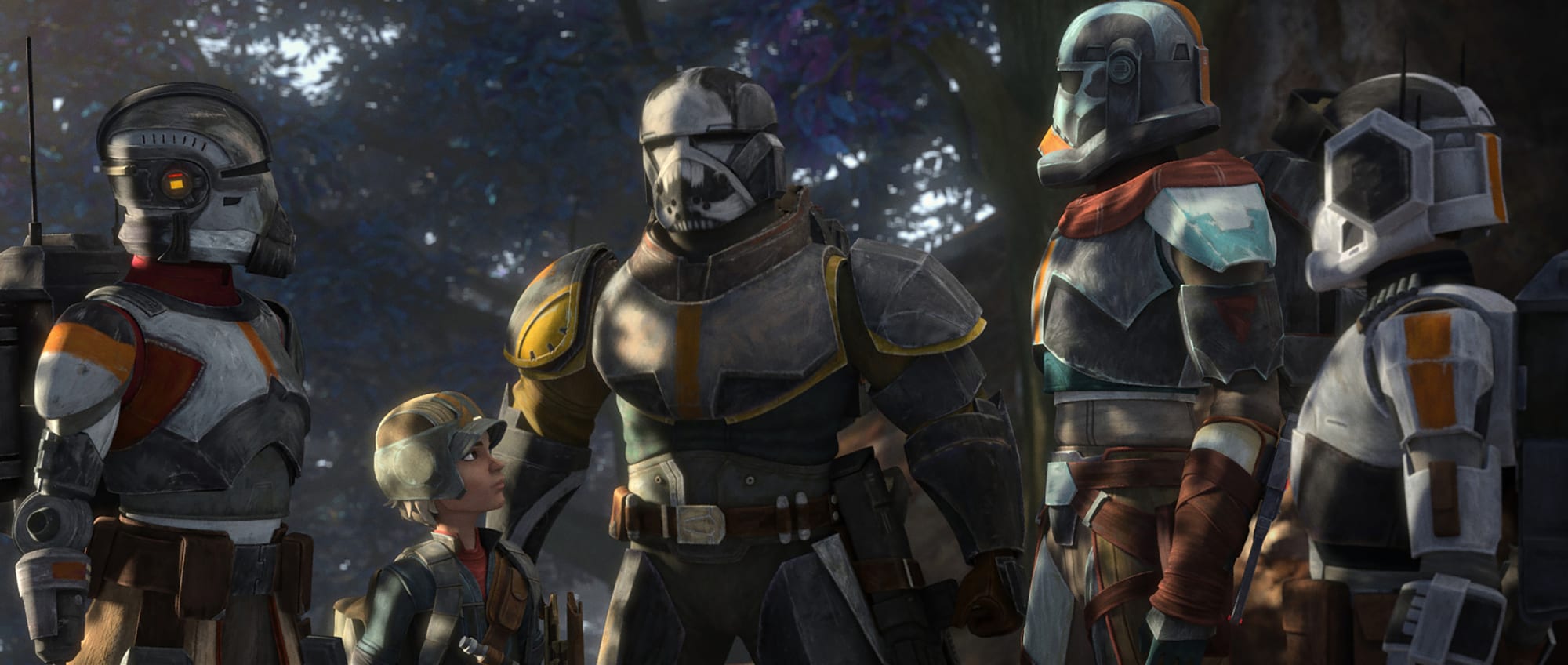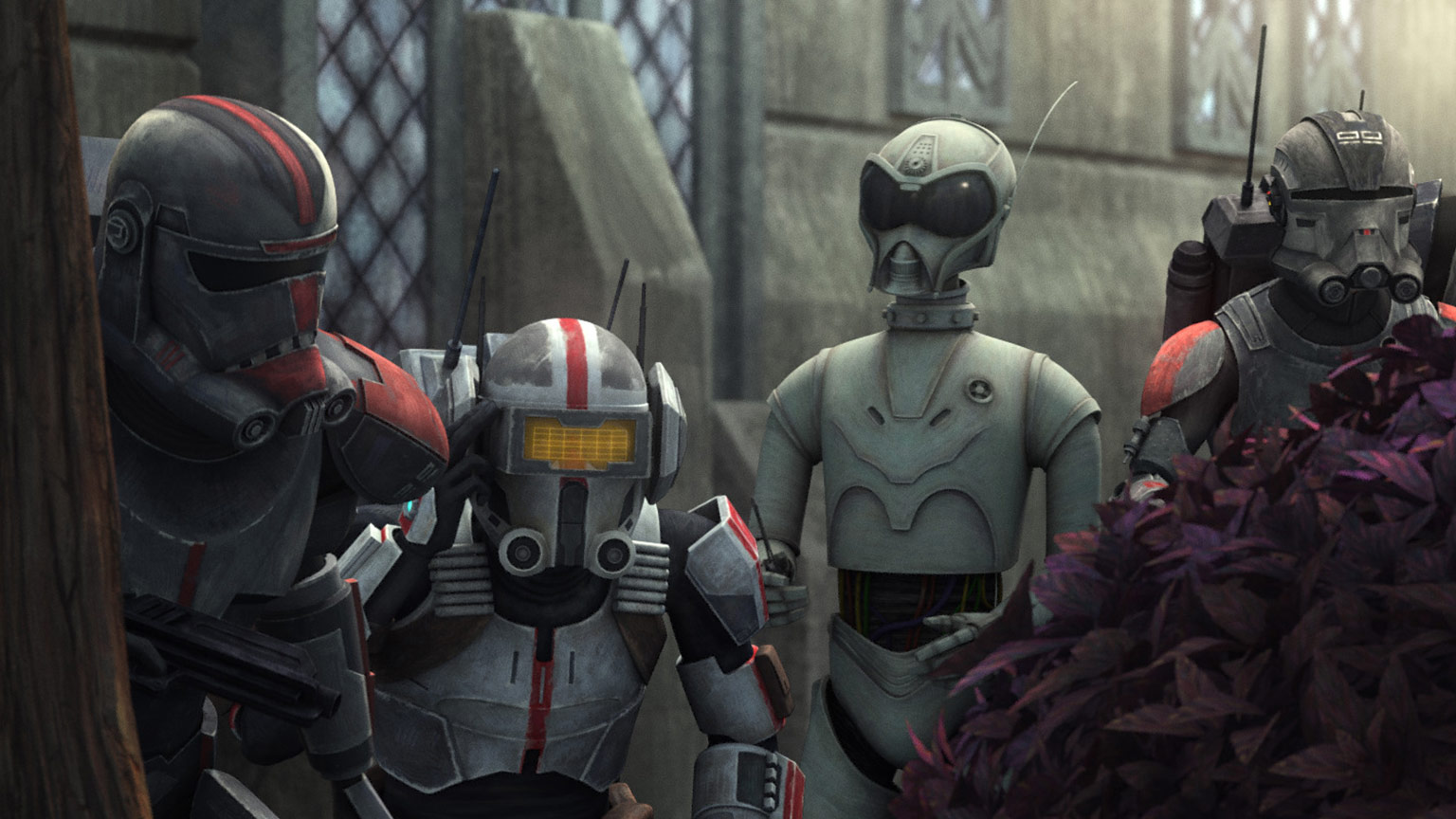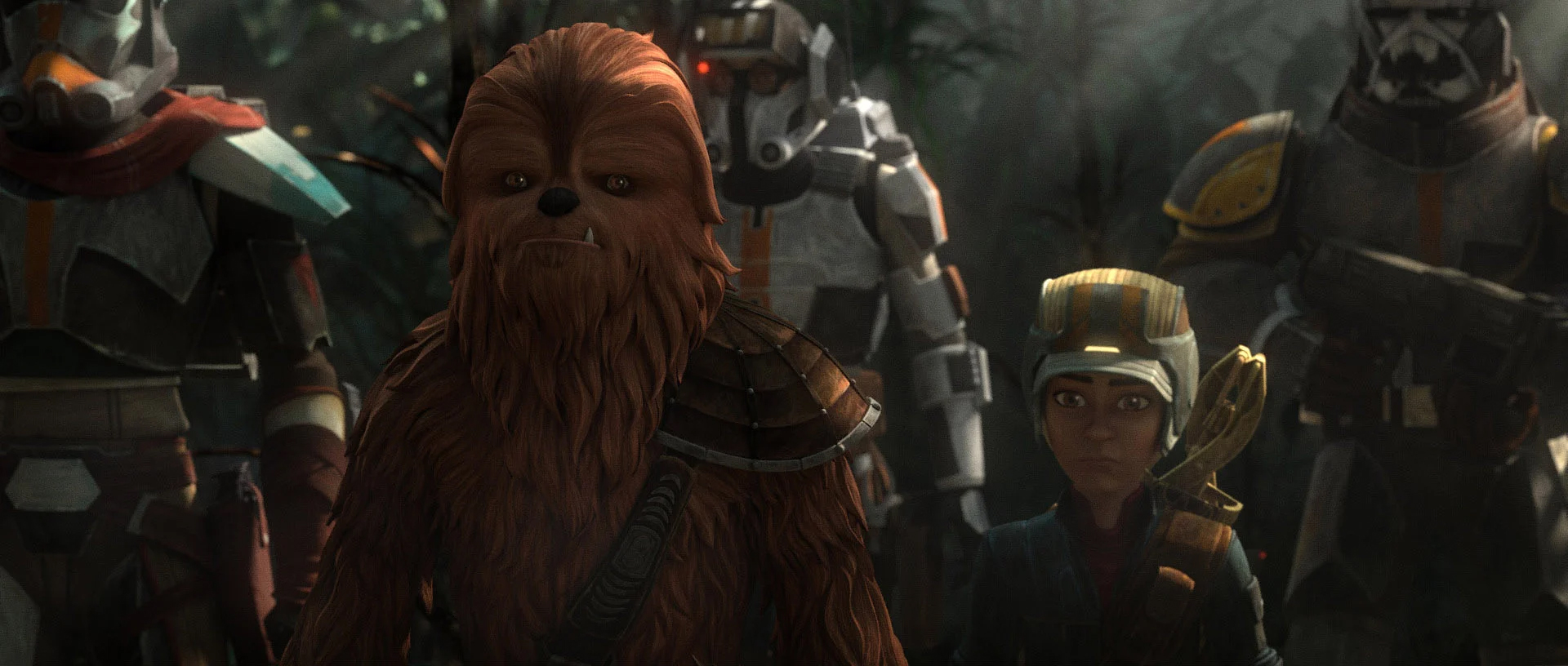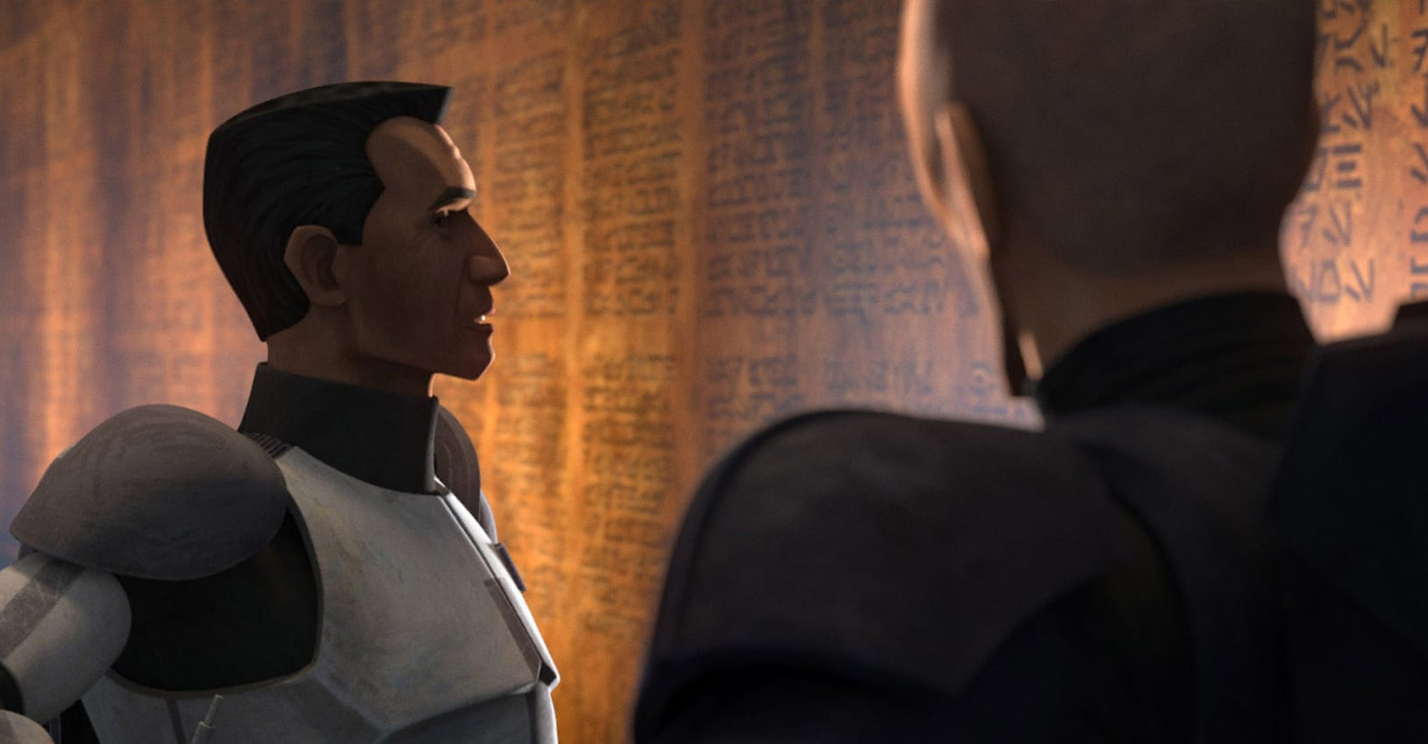The prequels of The galaxy war They are remarkable for several reasons. In particular, the attack of the clones there revenge of the sith they stand out for being among the first blockbusters to tackle the idea of the War on Terror. It is therefore necessary to see how The bad batch deals with the aftermath of this war.
In the contemporary press, director George Lucas tended to downplay the idea that he was writing for a specific time. To the specific question of whether revenge of the sith was a direct commentary on the war in Iraq, Lucas explained: “When I wrote it (the) war in Iraq did not exist. We were financing Saddam Hussein and giving him weapons of mass destruction. what we’ve done in Vietnam and what we’re doing in Iraq is incredible.
The original trilogy the war of Lucas’s Galaxies was explicitly shaped and informed by the filmmaker’s involvement in the Vietnam War. It is therefore not surprising that the attack of the clones there revenge of the sith had a strange resonance with American interventions in Iraq and Afghanistan. As was the case with Peter Jackson’s work on the trilogy of The Lord of the RingsAround the same time, the prequels were tied to something poignant in contemporary American culture, consciously or not.
In the second season, The Bad Batch’s biggest problem is… The Bad Batch
In “The Lone Clone”, The Bad Batch argues that heroism is a choice, not an identity
This is not a reading post hoc of these movies. In a contemporary article, the Wall Street Journal commented on the readings of revenge of the sith as “an indictment of the Bush administration for the alleged abuse of power to wage war and persuade the American people to abandon basic principles of democracy”. In The New York Times, AO Scott praised Lucas for “pointing his lightsaber in the direction of some real-world political leaders.”
The modern wave of nostalgia approached the turn of the millennium. There is clearly a strong desire to reconnect with the 1990s, while recent revivals like X files, will and gracethe meeting of Friends oh That 90s show. However, some of this wave has continued into the 21st century. The Lord of the Rings: The bone rings of the Poder is obviously a work of nostalgia rooted in the trilogy of The Lord of the Rings by Peter Jackson. Nostalgia for the prequels Star The wars are more and more pronounced.
One of the interesting aspects of this cyclical nature of nostalgia is that it provides an opportunity for reflection. These flashbacks exist in a different world, so there’s an interesting conversation between past and present. Meaning and context change as the distance between the original events and those who revive them increases. To take an obvious example, the paranoid conspiracies of X-files They had a different meaning in the 1990s than in the 2010s.
This is very true in the case of the war on terrorism. When they created attack of the clones there revenge of the sith, America was in a chauvinistic fervor. Only one senator, Russ Feingold, voted against the Patriot Act. When the French protested the American intervention in Iraq, there was a grassroots campaign to rename fries “freedom fries”. When Dixie Chicks member Natalie Maines publicly denounced the war in Iraq, the group was marginalized and ostracized.
More generally, the war on terrorism was considered an “eternal war”, a conflict that could last indefinitely. In a way, it was like a provocative rejection that the fall of the Berlin Wall had marked “the end of history” and the triumph of liberal democracy. By definition, the war on terrorism was an unwinnable fight against an abstract enemy, which would manifest itself in much more concrete foreign interventions in countries like Iraq or Afghanistan. There were always enemies to fight.
Two decades later, the dust has settled. The wars in Iraq and Afghanistan were not literally eternal wars, although President Joe Biden admitted that the war in Afghanistan was “the longest in American history”. In July and August 2021, the United States officially withdrew from Afghanistan, amid scenes of chaos. In December 2021, the US military officially announced the end of its combat mission in Iraq. It put an end to two concrete expressions of this endless war.

This new reality has swept across pop culture. As with the resonance of the turn-of-the-millennium trilogies of Peter Jackson and George Lucas, part of it was simply synchronicity. Although the film was written and shot before the move, it was difficult to watch the sequences of the fall of House Atreides on Arrakis in Dunes, by Denis Villeneuve, without recalling the images of the frantic withdrawal of the United States from Afghanistan. It was even released in North America on September 11, 2021.
Inevitably, nostalgia for the culture of that time must explore the legacy of that conflict. One of the most compelling facets of Los rings of the power is how it seems like a conscious effort to address the trilogy’s legacy of The Lord of the Rings of Jackson as an artifact of the War on Terror. In its most interesting moments, THE Bad Batch does something similar with the prequel trilogy’s legacy of star wars. The bad Group it often feels like a series about what happens to soldiers at the end of an eternal war.
This is partly due to the premise of the series, which follows a platoon of clone troopers who go rogue after Order 66. The basic structure of The Bad Batch is that of a series of “wandering heroes”. The basic structure of The bad lot is one of a series of “wandering heroes”, a staple of classic American television that includes classics such as the wanted there Kung Fu. As Popmatters pointed out about The The Incredible Hulkthis television model resonated after Vietnam, evoking “the overlapping tragedies of homelessness and disabled veterans”.
After all, The bad lot directly evokes Al A-Team, a classic TV series about a group of Vietnam veterans who find themselves on the run from the law while traveling across the United States. The team A created in the early 1980s, at a time when American television was increasingly comfortable acknowledging the trauma suffered by soldiers who had served in Vietnam. The protagonists of Magnum IP there miami vice They were also Vietnam veterans.

Como tal, The Bad Group positions itself as a series about veterans of a morally ambiguous war, who struggle to find their place in a universe after that conflict has ended. The tropes and conventions of The Bad Group throwback to classic post-Vietnamese era television, but the series is obviously influenced by a much more recent set of foreign interventions that haven’t really come to an end until recently.
This subtext becomes more evident in “The Clone Conspiracy” and “Truth and Consequences,” the midseason episode that premiered this week on Disney+. The bad lot is comprised between revenge of the sith and the star wars original, it therefore resumes the transition from the Galactic Republic to the First Galactic Empire under Emperor Sheev Palpatine (Ian McDiarmid). It also deals with the transition from veteran clone troopers to a new army of conscript stormtroopers.
What happens to those soldiers who return home after a war that has not been as brave or successful as they had hoped? As with the Vietnam War that preceded it, one of the great challenges in dealing with the aftermath of the War on Terror concerns the morality of the conflict. Much of the war was based on a lie; after all, there were no weapons of mass destruction in Iraq. There was also a sense that abuses like “enhanced interrogations” and Abu Ghraib cast a long shadow.
“We were following orders,” complains a Clone Wars veteran named Slip (Dee Bradley Baker) at the start of “The Clone Conspiracy.” His drinking partner, Cade (also Baker) opines, “Slip, we’re not bad men. But what we did was wrong.” It’s a heavy subject for a family-friendly animated TV series, but it touches on timely and relevant questions about how best to talk about the aftermath of this conflict, as well as the disappointment that followed.

After all, it’s easy to blame veterans for the wars they fought. Vietnam veterans have spoken of the stigma they faced from civilians in the aftermath of this unpopular war, although there are signs that veterans of Iraq and Afghanistan have not faced similar ostracism. Often the government fails to care for those who have served, either in terms of financial benefits or simply recognizing a basic duty of care.
In The bad lot, the Empire plans to enact a “Defense Recruiting Law” to create a “Recruiting Army”. What about existing veterans? “These are not droids to be shot down, they are soldiers who have defended us, who have defended our worlds,” protests Senator Chuchi (Jennifer Hale). “After all you’ve sacrificed, now you want to get rid of it?” Leave them with nothing? Is this how we compensate you for our service? And he continues: “How can we discuss the commissioning of a new army without a plan to deal with the current one?”
As befits a prequel trilogy that began with a dispute over the taxation of trade routes, The bad lot it gets to the heart of the matter of a government’s obligation to those who have served. Chuchi even offers “a retirement plan” for veterans, assuring them: “As difficult to accept, your military service will end. You will be able to choose what your life will be like.” It’s a very timely sentiment that speaks to the plight of soldiers who have just returned from controversial postings overseas.
The bad lot sympathize with these veterans without excusing the war. “Truth and Consequences” understands that soldiers are convenient scapegoats for leaders who prosecute these conflicts. When footage of the Empire’s war crimes on the planet Kamino is revealed, Palpatine places more blame on the troops who “blindly followed orders, inflicting such carnage without hesitation” than on the officers who gave those orders. After all, George Bush and Tony Blair will never be charged with war crimes.
So, in his best moments, The bad lot is a surprisingly mature and clever extension of the War on Terror metaphor that inspired attack of the clones there Revenge of the Sith. It builds on these core ideas in a way that acknowledges how much time has passed and how perception has changed. It’s a smart commitment not only to the legacies of those films, but also to the legacies of the events that shaped and influenced them.

